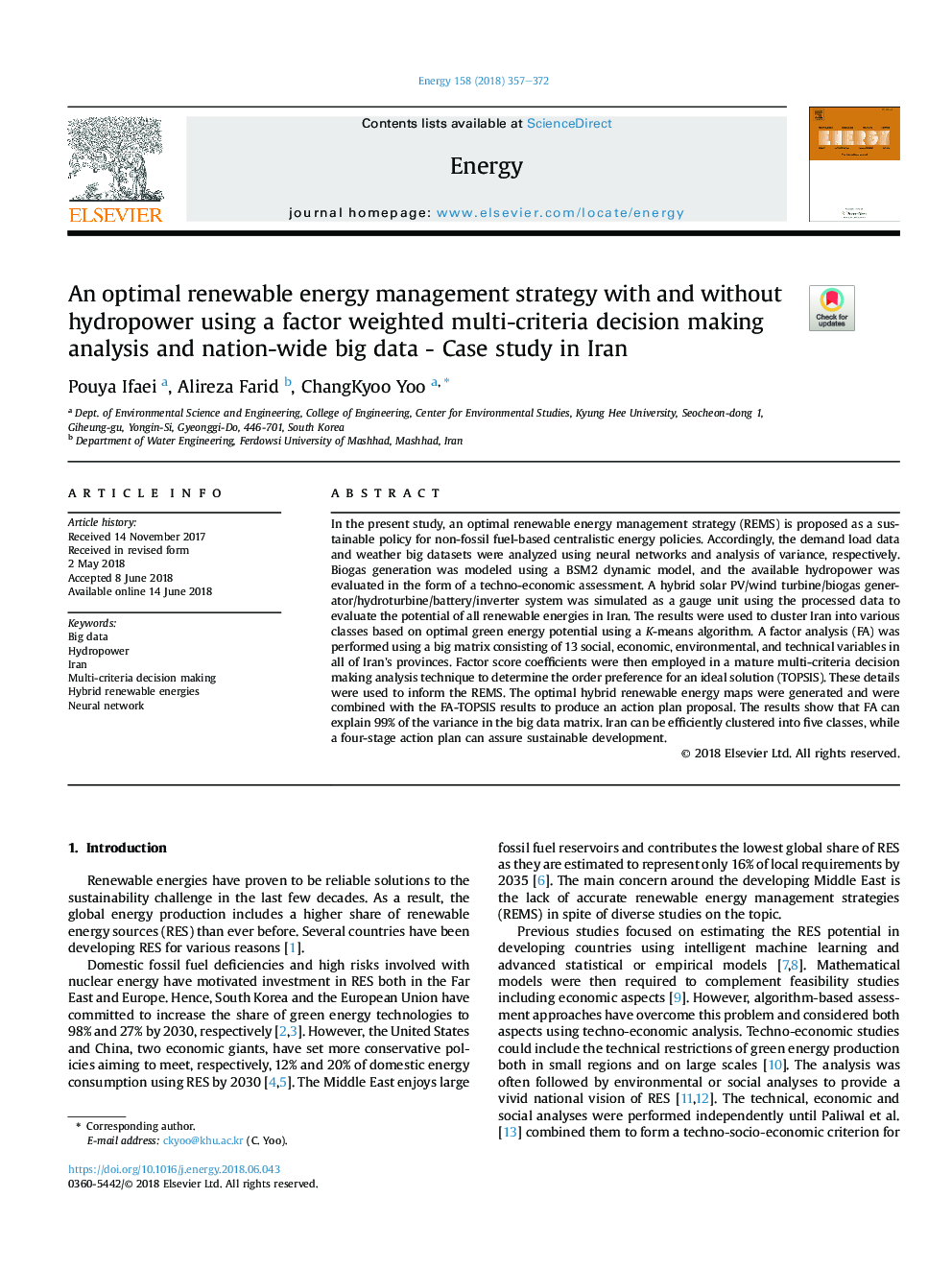| کد مقاله | کد نشریه | سال انتشار | مقاله انگلیسی | نسخه تمام متن |
|---|---|---|---|---|
| 8071243 | 1521392 | 2018 | 16 صفحه PDF | دانلود رایگان |
عنوان انگلیسی مقاله ISI
An optimal renewable energy management strategy with and without hydropower using a factor weighted multi-criteria decision making analysis and nation-wide big data - Case study in Iran
ترجمه فارسی عنوان
یک استراتژی مدیریت انرژی مطلوب با انرژی خورشیدی و بدون آن با استفاده از تجزیه و تحلیل تصمیم گیری چند معیاره با ضریب وزنی و داده های بزرگ کشور - مطالعه موردی در ایران
دانلود مقاله + سفارش ترجمه
دانلود مقاله ISI انگلیسی
رایگان برای ایرانیان
کلمات کلیدی
اطلاعات بزرگ، نیروی برق، ایران، تصمیم گیری چند معیاره، انرژی های تجدید پذیر ترکیبی، شبکه عصبی،
موضوعات مرتبط
مهندسی و علوم پایه
مهندسی انرژی
انرژی (عمومی)
چکیده انگلیسی
In the present study, an optimal renewable energy management strategy (REMS) is proposed as a sustainable policy for non-fossil fuel-based centralistic energy policies. Accordingly, the demand load data and weather big datasets were analyzed using neural networks and analysis of variance, respectively. Biogas generation was modeled using a BSM2 dynamic model, and the available hydropower was evaluated in the form of a techno-economic assessment. A hybrid solar PV/wind turbine/biogas generator/hydroturbine/battery/inverter system was simulated as a gauge unit using the processed data to evaluate the potential of all renewable energies in Iran. The results were used to cluster Iran into various classes based on optimal green energy potential using a K-means algorithm. A factor analysis (FA) was performed using a big matrix consisting of 13 social, economic, environmental, and technical variables in all of Iran's provinces. Factor score coefficients were then employed in a mature multi-criteria decision making analysis technique to determine the order preference for an ideal solution (TOPSIS). These details were used to inform the REMS. The optimal hybrid renewable energy maps were generated and were combined with the FA-TOPSIS results to produce an action plan proposal. The results show that FA can explain 99% of the variance in the big data matrix. Iran can be efficiently clustered into five classes, while a four-stage action plan can assure sustainable development.
ناشر
Database: Elsevier - ScienceDirect (ساینس دایرکت)
Journal: Energy - Volume 158, 1 September 2018, Pages 357-372
Journal: Energy - Volume 158, 1 September 2018, Pages 357-372
نویسندگان
Pouya Ifaei, Alireza Farid, ChangKyoo Yoo,
